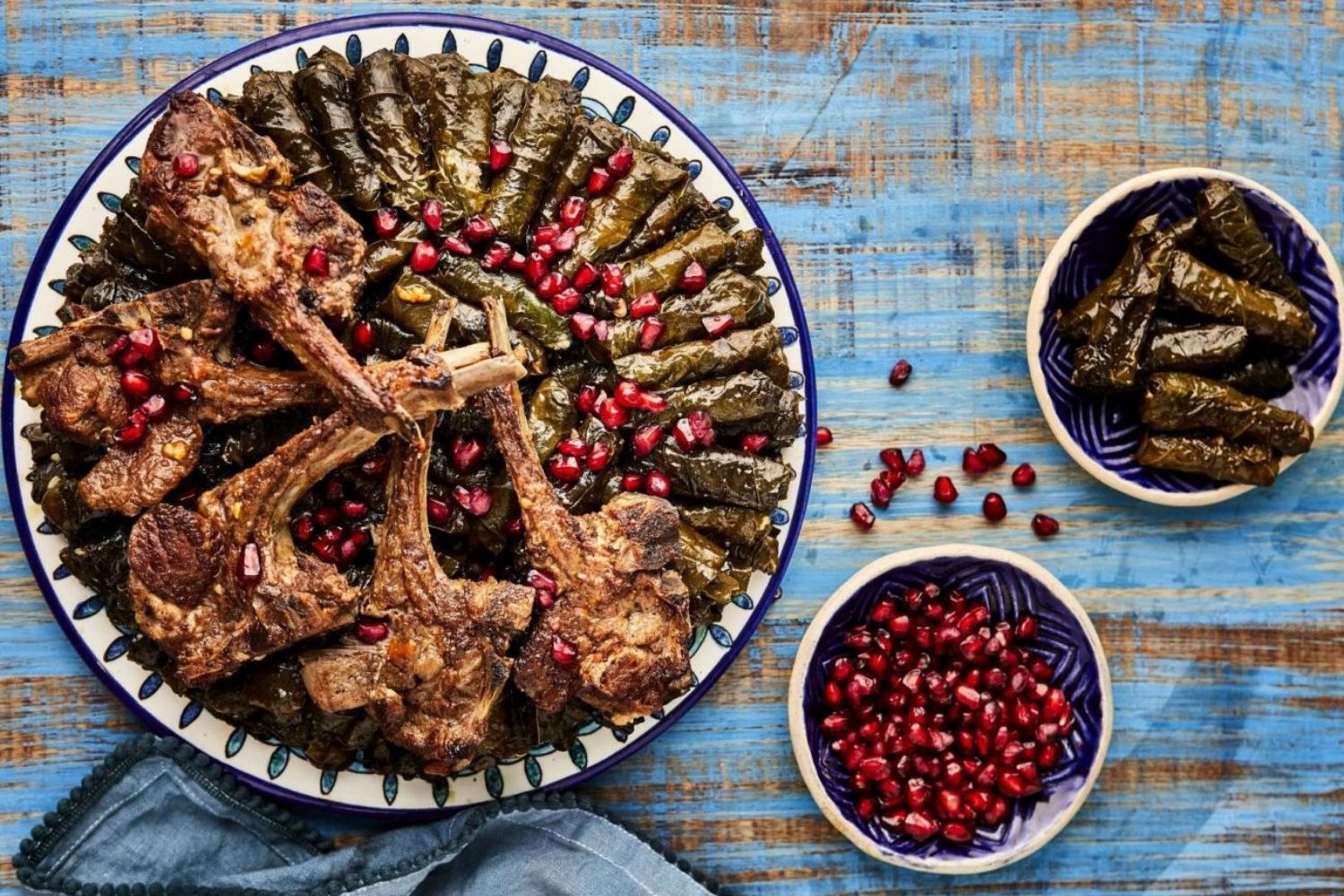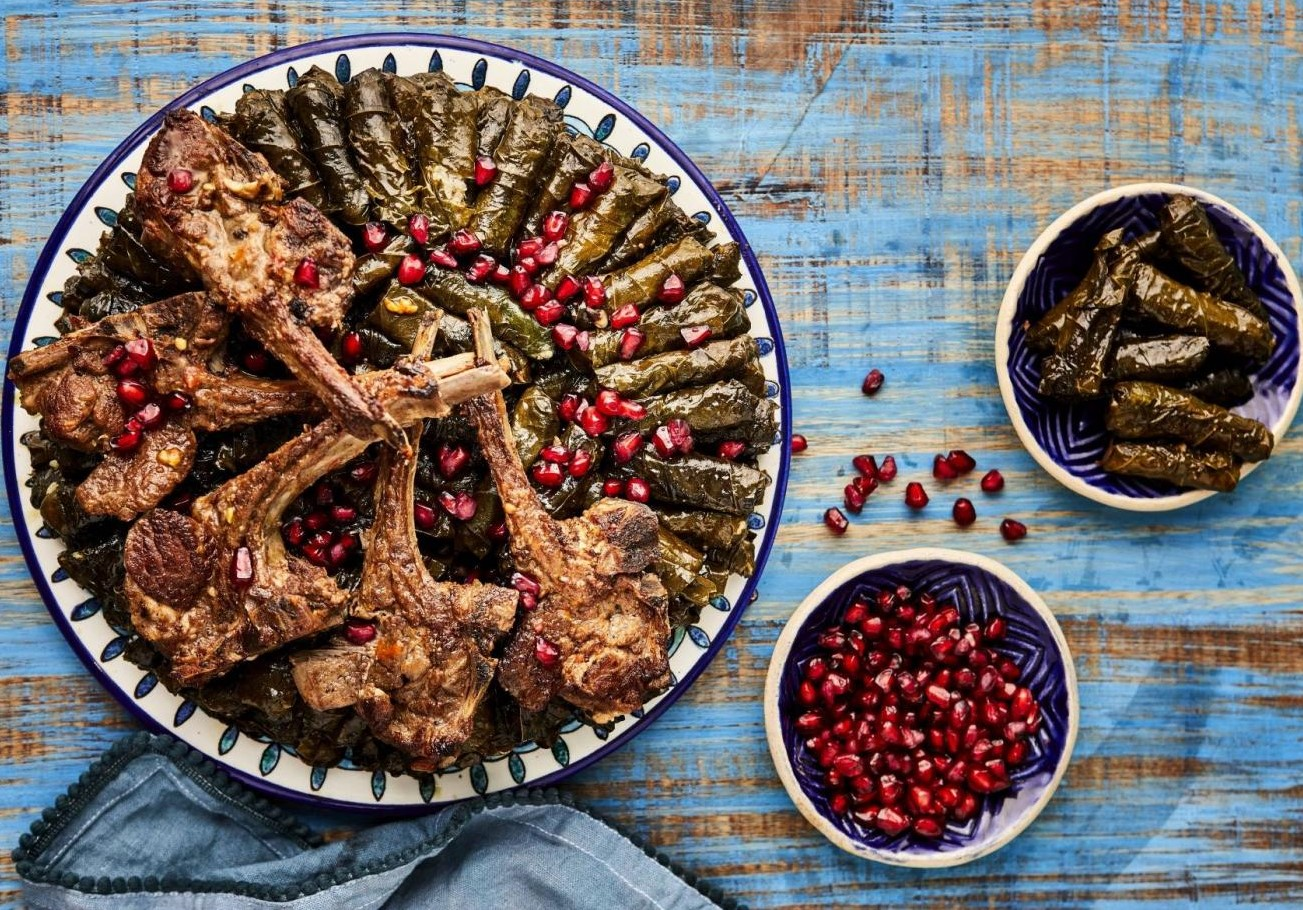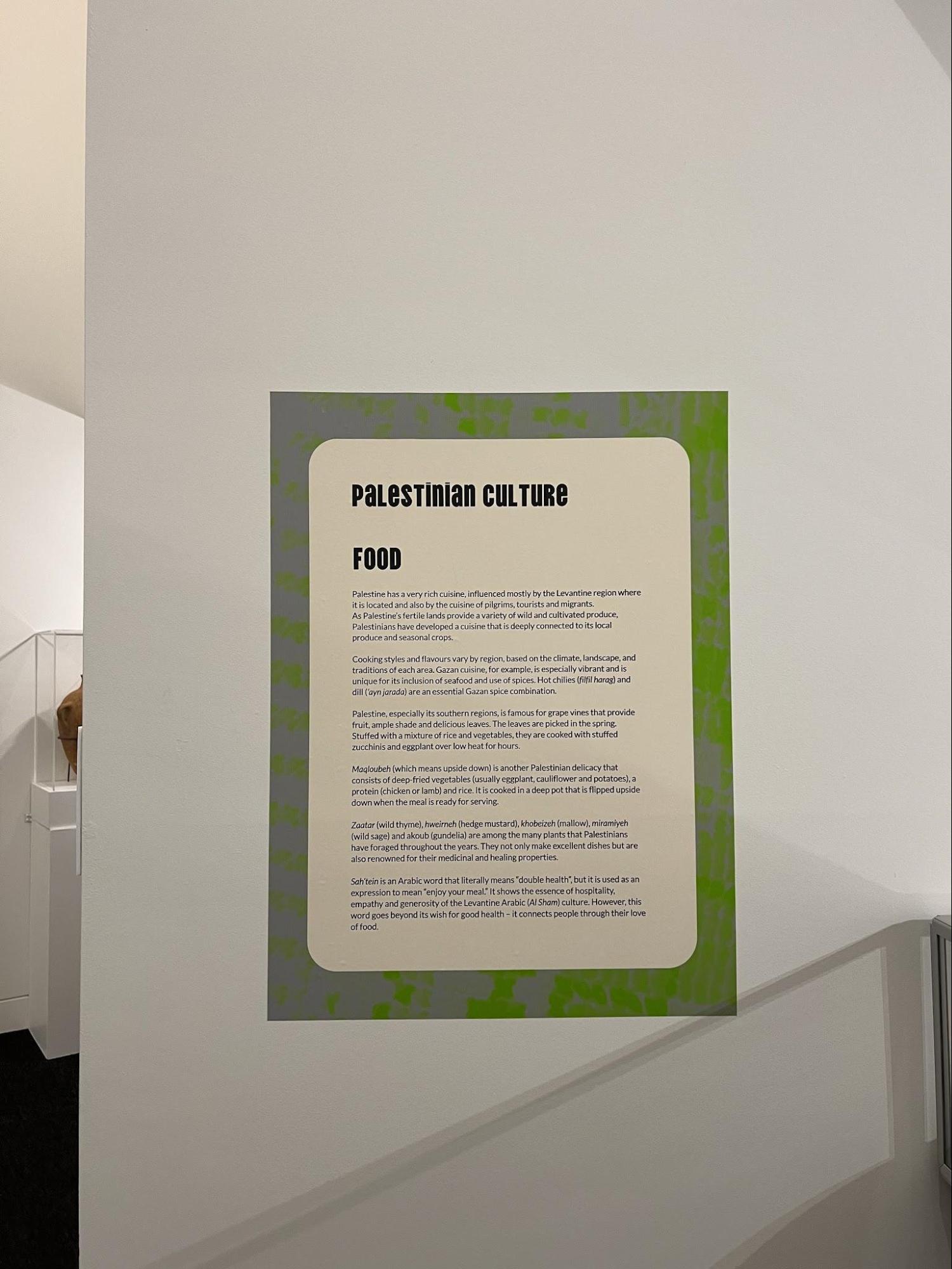Sunday 15th February 2026
Open Mon-Sat, 10am to 4pm. Closed Sunday and all public holidays.
Sunday 15th February 2026
Open Mon-Sat, 10am to 4pm. Closed Sunday and all public holidays.

Every culture begins with its food, and Palestinian cuisine is a vibrant representation of the people's rich history, ingrained customs, and tenacity. Through its culinary traditions, the Islamic Museum of Australia provides a glimpse into the everyday lives and resilient spirit of Palestinians.
Palestinians have traditionally benefited from an abundance of fresh ingredients from the Levant's lush fields, including wheat, olives, fragrant herbs and spices. Often referred to as the vital component of Palestinian cooking, olive oil is a basic ingredient in almost every meal. This golden oil is a sign of ties to the land and is extracted from olives that have been farmed for many generations.
Food in Palestinian culture is deeply symbolic, reflecting the people’s connection to their history, land, and community. For example, za’atar, a blend of wild thyme, sesame seeds, and sumac, is more than just a seasoning. It is a symbol of Palestinian resilience and connection to the earth, often sprinkled on bread to be enjoyed during gatherings, symbolising unity and tradition.


Meals in Palestine are often communal, where family and friends come together to share in the bounty of the land. This act of sharing is central to Palestinian life, fostering a sense of belonging and continuity. The preparation and consumption of traditional dishes are ways for Palestinians to maintain their cultural identity, especially in the face of adversity and displacement.
The Islamic Museum of Australia offers a unique opportunity to delve into the rich culinary traditions of Palestine. Visitors can learn more about how these customs have formed and maintained Palestinian culture throughout the ages through exhibitions that examine the origins and significance of Palestinian cuisine.
With a strong connection to the land, history, and identity of its people, Palestinian cuisine culture has a rich and lasting legacy. Discover how food functions as a potent symbol of Palestinian heritage and resiliency by investigating these culinary traditions at the Islamic Museum. Inviting visitors to engage with a culture as colourful and tasty as the foods it honours.